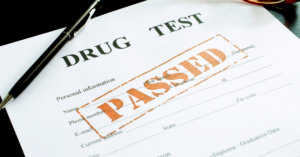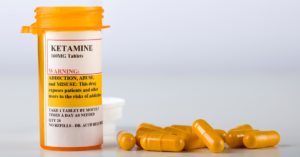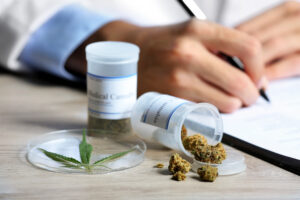Addiction recovery is often a long and arduous process, with different stages along the way. It can be difficult to know what addiction resources are available throughout each stage, especially when you’re new to recovery. It is essential for addiction specialists, as well as people embarking on this personal journey, to stay up to date on all available treatment services so they can set themselves up for success in achieving long-term sobriety.
In this blog post, we’ll discuss the key steps involved in the various stages of recovery. With the proper addiction resources on hand, individuals will be better equipped to stay on track with their recovery from substance abuse or mental health issues.
What Are Addiction Resources?
Addiction resources are essential for those who are struggling with substance abuse and behavioral health challenges. They are designed to enable individuals to manage their addiction, build resiliency, and transition successfully into a more independent lifestyle. These resources may include community-based programs, professional treatment centers, and self-management support groups.
Certain addictions may require unique forms of intervention such as medication-assisted treatments and different types of therapy. Individualized therapy options are available which can include trauma work, mindfulness practices, or evidence-based cognitive behavioral approaches. Many addiction programs provide specialized mental health services and care coordination plans tailored to an individual’s needs, preferences and existing condition. Overall, addiction resources can vary in type however all tend to provide patients with increased motivation and tools so that they can break free from addiction and create sustainable long-term change in their lives.
What Are The Stages of Recovery?
There are five distinct stages of recovery from any type of addiction or mental health disorder. These stages can help guide individuals on their journey to a healthier and more fulfilling life. They can also provide insight into their progress and offer them a renewed sense of hope for the future. In order, the stages are precontemplation, contemplation, preparation, action and maintenance. Below we will dive deeper into each of these stages and gain a better understanding of how addiction resources can assist those going through this process.
1. Precontemplation Stage
The precontemplation stage of recovery is often the initial entry-point into making a significant change in one’s life. Individuals at this stage have not fully thought out or considered making any substantial changes to their behavior, yet. There is no intention to do so at this moment in time, nor are there any concrete plans in place for the near future. The timeline for this stage typically lasts a couple months, up to almost six months.
Precontemplation is an important pattern of behavior to consider when planning a course of treatment or therapy. It gives insight into an individual’s needs, motivations and overall attitude towards potential change. When working with individuals at this stage, it is essential to focus on teaching them self-awareness. In order for individuals to be fully engaged in long-term plans for recovery, they must also gain an understanding of their own situation. It is estimated that around 50% to 60% of individuals successfully progress through this stage and move on to making healthy lifestyle adjustments.
2. Contemplation Stage
The contemplation stage is an important step in the recovery process. It typically follows a period of awareness, where the individual becomes increasingly conscious of the limits and consequences of their behavior. During this stage, they will consider all angles of change– both the positive attributes associated with it and any potential difficulties or drawbacks. They must adequately assess whether the positive outcomes outweigh the negative ones. If they decide to move forward, they can safely transition into the following action stages. This thoughtful analysis promotes rational decision-making skills and provides structure throughout the process of recovery.
3. Preparation Stage
The preparation stage of recovery is a crucial step toward moving forward and taking action. During this vital period, patients will take steps to further assess their situation and make a plan for the future. This is the time to dive deeper into individual struggles and unique goals that are needed to reach lasting sobriety. By identifying the underlying issues that may have contributed to their addiction, individuals are able to examine how these negative habits first developed. Through self-reflection and goal setting exercises, individuals are better prepared to face the challenges ahead of them before entering the action stage of recovery.
4. Action Stage
The action stage of recovery is a critical moment in the recovery journey, and marks the point where real progress can start to be seen. During this phase, patients are encouraged to put into practice psychological, lifestyle and sometimes medical interventions learned during the previous stages of recovery preparations. By focusing on daily practices that maintain accountability and develop motivation, patients can actively build healthier ways of approaching challenges. This can involve making tangible changes such as revising daily schedules or participating in community activities. With these active changes and new experiences pushing them towards long-term goals, they will have the opportunity to gain further trust in themselves as well as find comfort in re-establishing balance in their lives.
5. Maintenance Stage
Upon reaching the maintenance stage in recovery, patients become more self-assured that they can maintain their newfound lifestyle. Utilizing techniques acquired in the previous stages, such as staying mindful of triggers, practicing positive coping mechanisms, and establishing a supportive community, they can confidently move forward with a new sustainable way of life. Those who enter the maintenance stage have a high chance of avoiding relapse and achieving long-term health and well-being.
How Resources Can Help When Considering Addiction Treatment
When it comes to addiction, it’s important to understand what treatment options are available. Fortunately, there are multiple resources designed to help those on their journey to sobriety. From information on substance-specific treatments and recovery programs, to data-driven research, individuals can empower themselves with knowledge to bridge the gap between recovery and achieving overall better health. Online and offline addiction resources are also available to provide an outlet for those looking for support from others in similar situations.
Receive The Addiction Resources You Need To Succeed at Diamond Recovery
If you are considering starting on the journey to recovery, seeking out the assistance of addiction treatment consultants is invaluable. These specialists can help you find support networks that understand your needs and connect you with others in recovery.
At Diamond Recovery, our professionals put forth the utmost amount of time, dedication, and hard work to set our patients up for long-term success. We believe that when you arm yourself with knowledge and state-of-the-art addiction resources, you can make lasting, positive change.
Reach out to us today to learn more about how we can help.





